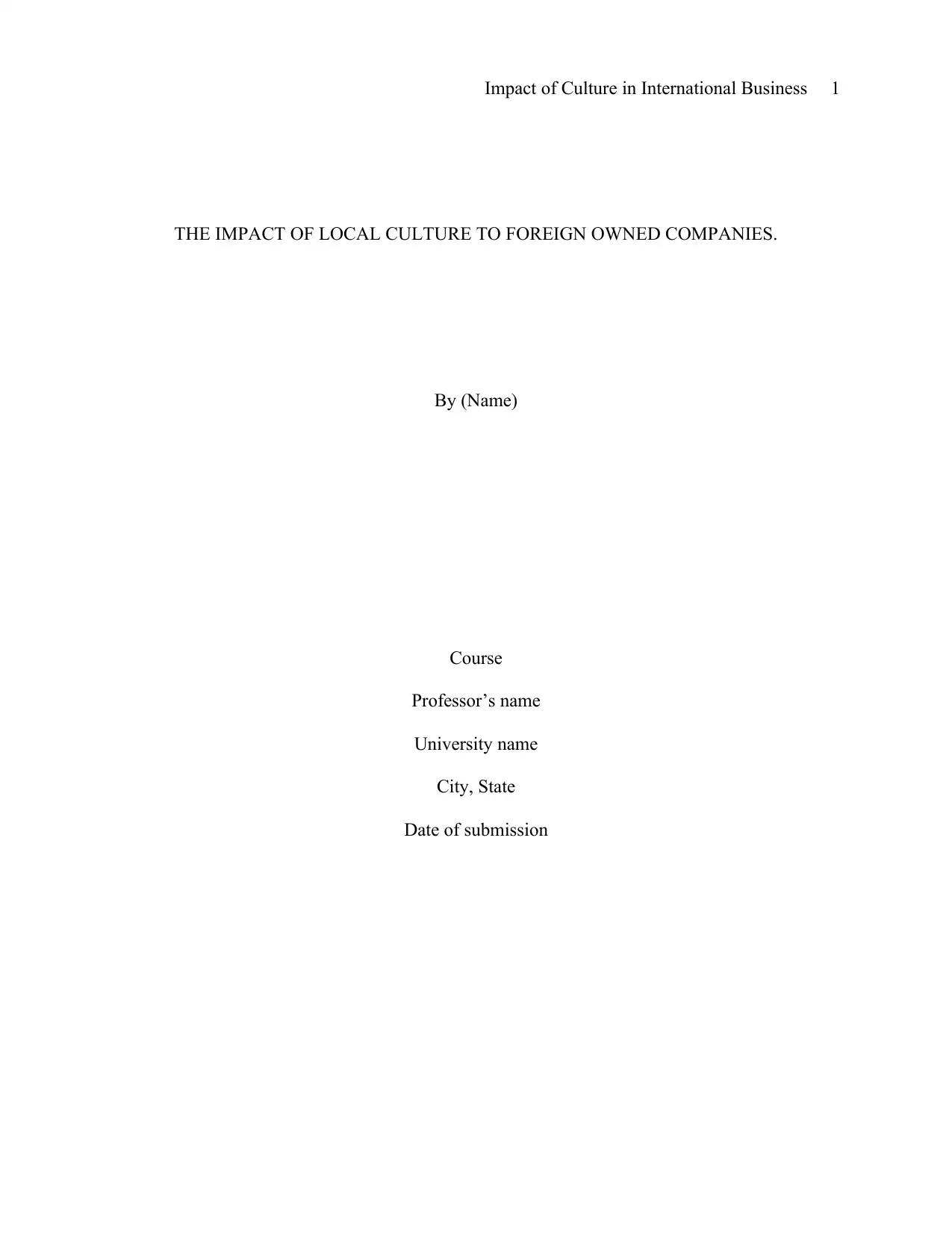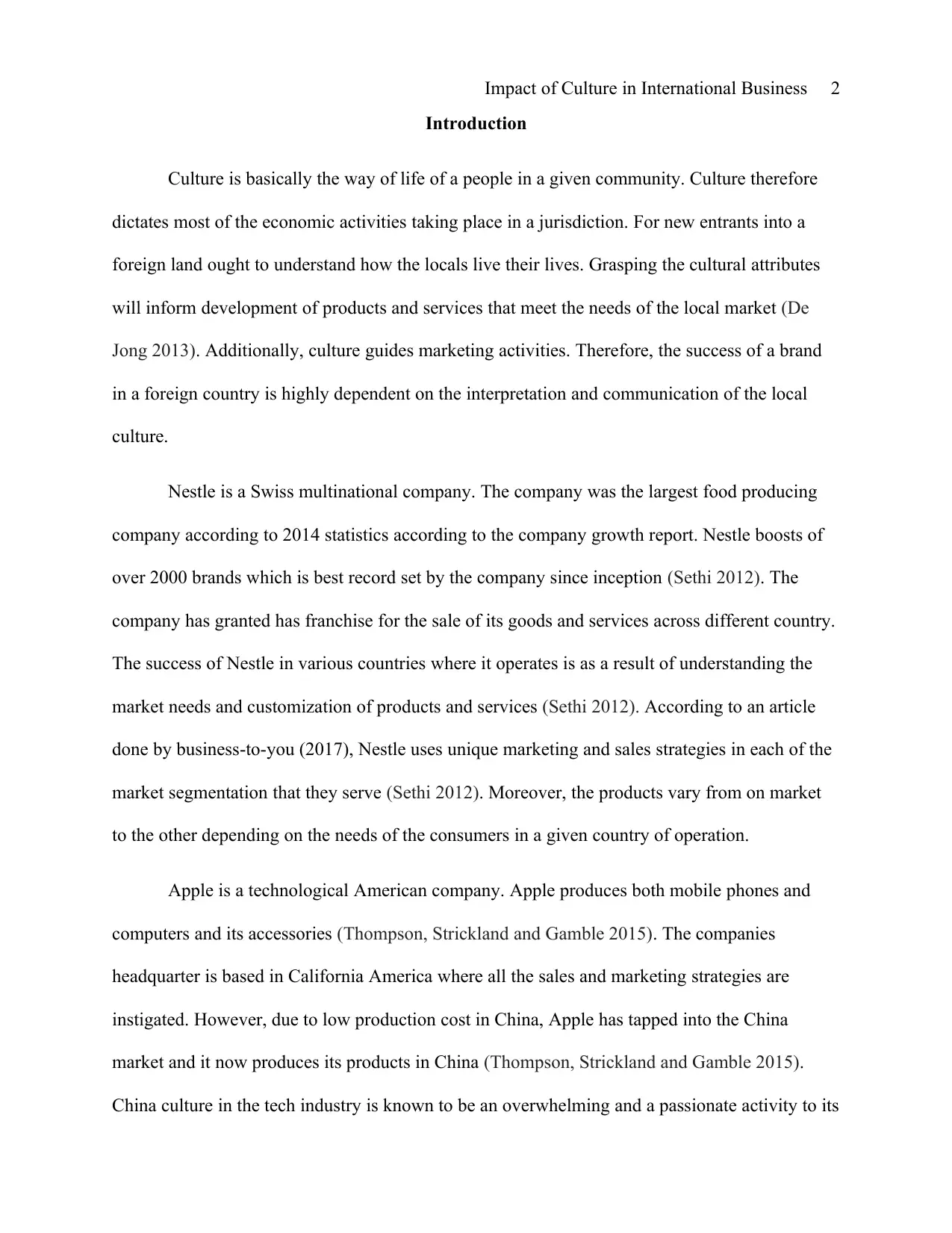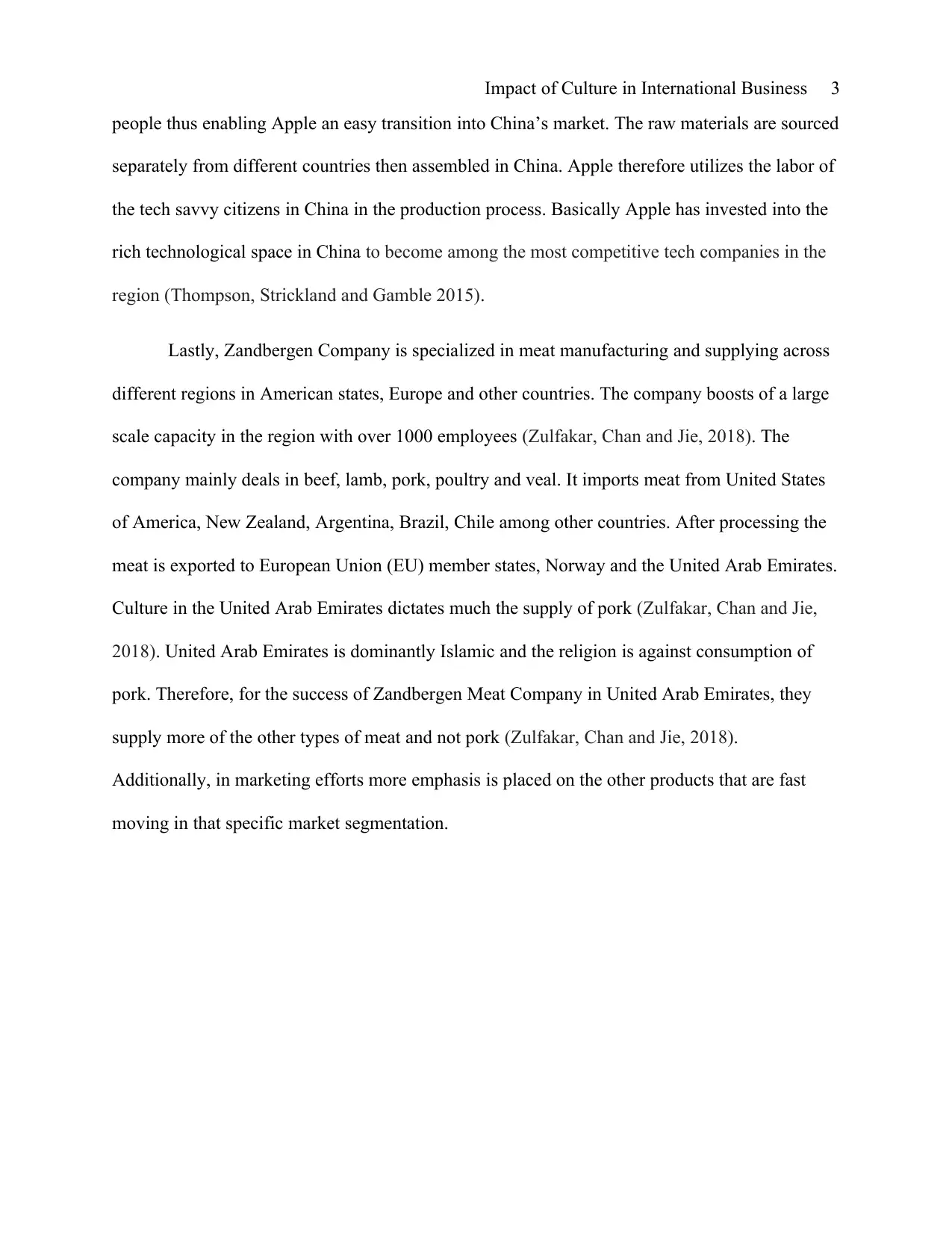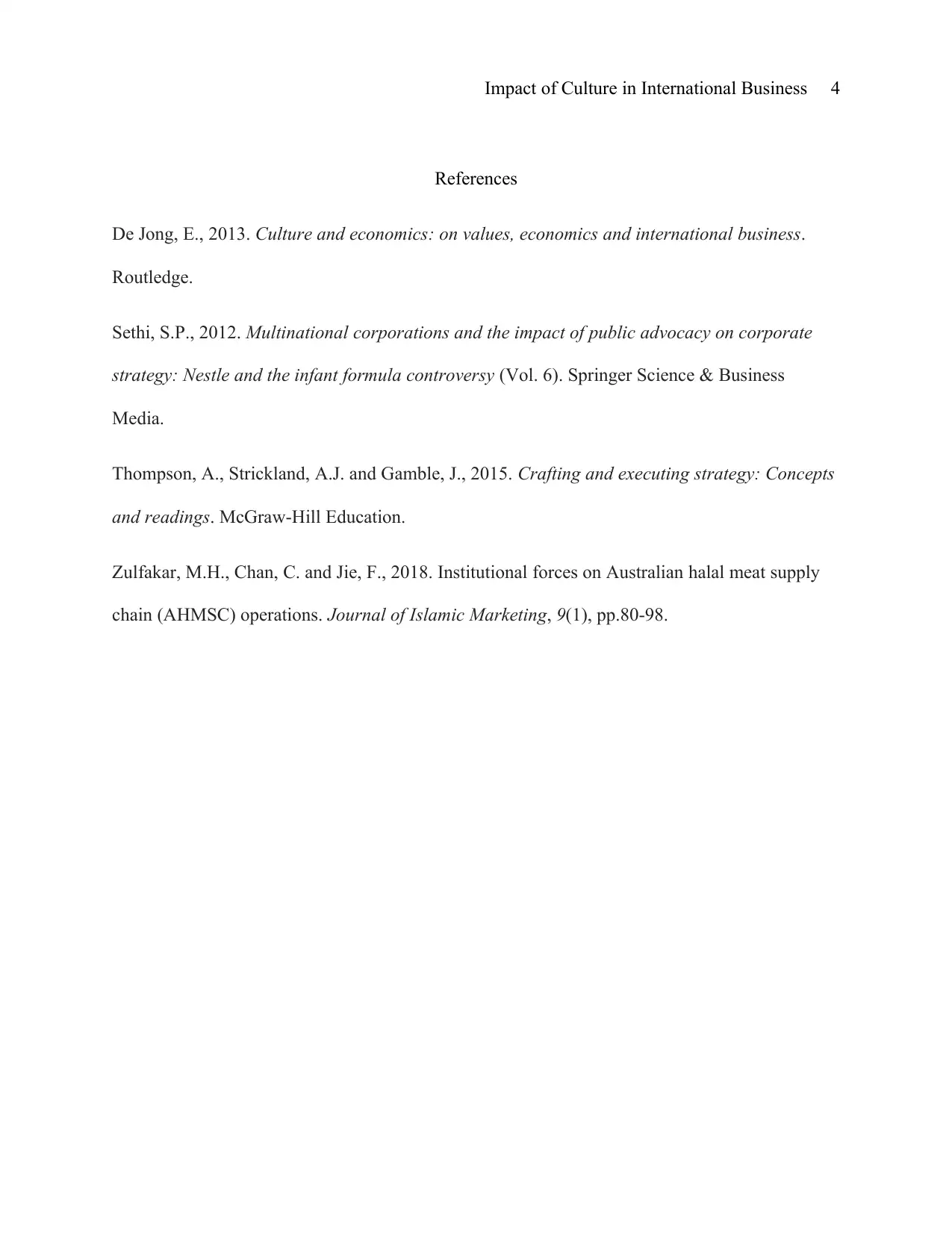International Business: Culture's Impact on Company Performance
VerifiedAdded on 2022/09/29
|4
|786
|22
Report
AI Summary
This report examines the profound influence of local culture on the strategies and successes of foreign-owned companies in international business. It emphasizes the importance of understanding and adapting to local cultural nuances to effectively develop products, services, and marketing campaigns. The report uses case studies of Nestle, Apple, and Zandbergen to illustrate how companies navigate cultural differences in diverse markets. Nestle's success is attributed to its customization of products and marketing strategies, Apple's adaptability is evident in its investment in the Chinese market, and Zandbergen's approach highlights the impact of religious and cultural practices on product offerings. The report underscores that grasping cultural attributes is essential for new entrants into foreign lands, guiding the development of products and services that meet the needs of the local market and ensuring brand success through effective communication of local culture.
1 out of 4







![[object Object]](/_next/static/media/star-bottom.7253800d.svg)